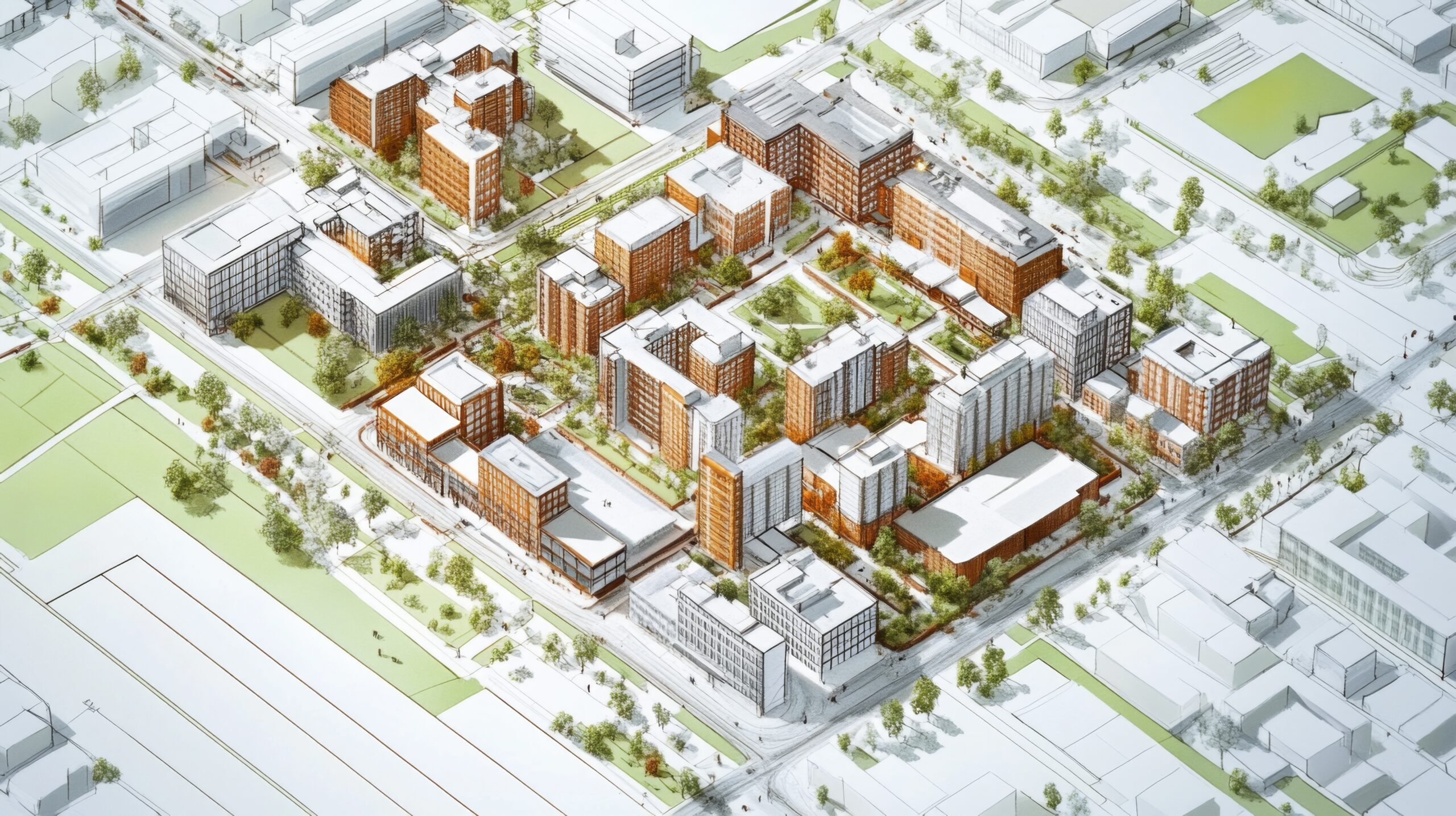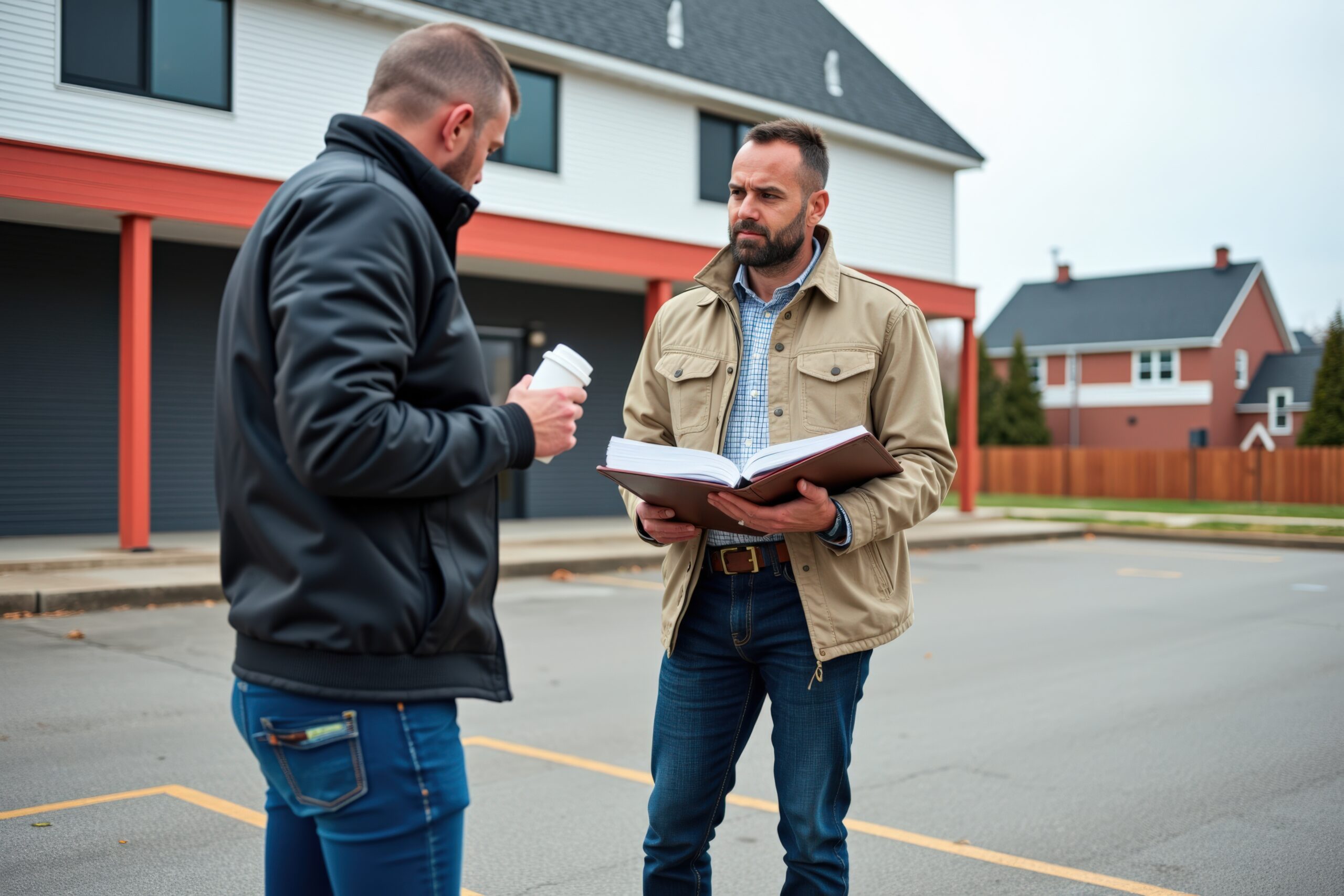
Identifying new sites using digital technology
The Development Management Process: What You Need to Know
If you’re planning to build a new home or develop a site for housing, the development management process can feel overwhelming. It’s more than paperwork—it’s a step-by-step planning journey with real consequences for time, budget and results.
Too often, people treat planning advice as a last resort. But those who succeed are the ones who bring in support early—when it can make the biggest impact. Here’s how the planning application process works, and why getting a planning consultant involved at the right time could save you months of frustration.
Understanding the Planning Journey: From Land to Layout
Every project begins with land. Whether you’ve found a plot at auction, inherited a field, or bought a site with potential, your first step in the development management process is to understand what’s possible under planning rules.
A qualified planning consultant can help you uncover constraints, spot opportunities, and avoid common pitfalls. Local policies, access concerns, protected trees, or previous refusals could all shape what you can achieve—and how you approach it.

One of many meetings between planner and client reviewing site plans
Early Planning Advice: Why It Pays to Start Smart
One of the most important stages of the planning process is what happens before a single form is submitted. Many schemes get delayed or refused not because the idea was wrong, but because key issues weren’t tackled early enough.
This is where pre-application advice comes in. A good consultant will advise whether to approach the Council informally, help test the concept, and shape your proposal to avoid red flags. It also means working alongside your architect to ensure your dream design can also meet planning policy head-on.
Preparing a Planning Application That Stands Up
Once you’re confident your scheme is viable, it’s time to prepare the application. This includes detailed plans, supporting reports, and crucially, a Planning Statement that explains how your proposal aligns with national and local planning policies.
A consultant experienced in the development management process will help build a complete and professional submission. From managing the team to anticipating what the Council will want to see, they remove guesswork and keep things on track.

A detailed urban plan highlighting transportation routes and green spaces. (AI)
Validation in the Planning Application Process
When the application lands at the Council, it’s first checked—or validated. Missing documents or minor technical faults can stall your progress before it’s even begun. Worse, delays here are avoidable.
This is where expert support shines. Your consultant will ensure everything’s submitted correctly the first time, preventing unnecessary hold-ups. It’s not about volume—it’s about precision.

Listening to the concerns of neighbours can make applications easier.
Public Consultation and Officer Review
After validation, the Council opens the proposal to comments from neighbours, local councillors and internal departments. This stage of the planning journey can be unpredictable—but it’s not out of your hands.
If objections appear, your consultant can help respond calmly and professionally. Behind the scenes, they’ll liaise with the planning officer, address queries, and keep momentum going. This kind of ongoing engagement often makes the difference between a refusal and an approval.
Decision Day: What Happens and What Comes Next
When consultation ends, the case officer prepares their report. They may approve the scheme under delegated powers or recommend it for committee. Either way, a clear and policy-led application is what helps things go your way.
If the application is refused, your planning consultant will already have a next step in mind. Whether that’s an appeal, resubmission or small changes, you’ll have a plan—and that means control.
Why You Need Support Early in the Development Management Process
Planning is not a tick-box exercise. It’s a managed negotiation—between your ambitions, your team, and the Council’s rules. The earlier you bring in a planning expert, the more options you’ll have and the fewer surprises you’ll face.
At Norton Taylor Nunn, we work with independent developers and self-builders to guide projects from start to sign-off. We help you plan ahead, avoid delays, and present your case clearly—so you can build with confidence and move forward faster.
Let’s unlock your site’s potential—talk to us today.
Want to read more?
Explore how we helped a self-builder secure permission in a conservation area on our blog.



